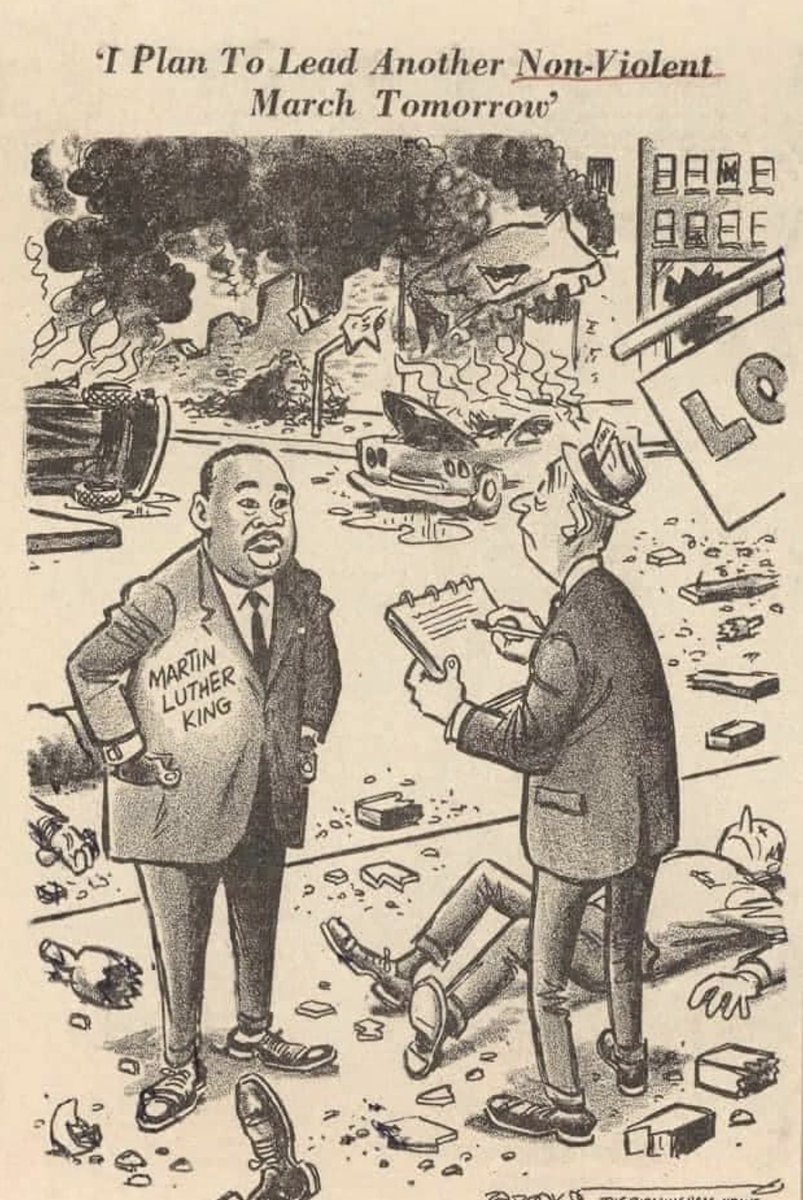I think teaching people how protests work is pretty important praxis and is not talked about nearly enough.
Moderates and liberals tend to think of protest and demonstration as the same thing and anything that is not a demonstration is generally though of as bad or counterproductive.
Most of the populace simply doesn’t understand that blocking roads or getting arrested have strategic value. They consider the goal of every protest to be to raise awareness and support and to convince people like them ™️ that any given cause is worth supporting and that their support is all it really takes to a make change happen. It’s a very self-centered view of how political movement work and it seems unfortunately quite obiquitous.
They see a road block and think “that just makes you look bad” and the thought process ends there because now your movement isn’t worth supporting in their eyes. If you try to explain that blocking off roads is often done to cut off supply lines to financial districts or big corporations and put economic pressure on them or the politicians they donate to, they refuse to engage with the idea entirely or claim that it doesn’t actually work and the only way to protest successfully is to win over people like them even though they’ve probably never been to a demonstration, let alone a direct action event and if they did they’d probably do more harm than good given how ignorant they are on the subject.
We really need to educate people about protesting tactics, how they work, what they actually seek to achieve, and how different methods put pressure on different areas to get different effects and I think you probably can’t teach this to older generations but younger generations are capable of learning and we really need them to learn this.
Teaching people to think in terms of systems and take a structural approach when trying to change a system is paramount because, in the current state of things, the common belief seems to be if enough people wave signs from the sidewalk, things magically work out in the end.
I’ve been thinking about this in the context of the reaction to MLK at the time and how we look at it today compared to the many protests of recent years, and my conclusion from people talking in here is that we are still falling for the white-washed narrative of what protesting is supposed to look like.
The short of my thoughts is that a demonstration and a protest accomplish two entirely different goals and therefore are to be used in entirely different circumstances. A demonstration may inconvenience people, but it is ultimately about bringing eyes onto the issue and gathering support for your cause. A protest, on the other hand, is to be used after you already have the support of the people. It’s the union strike after negotiations have broken down. It’s a show of force meant to shock and awe the people in power.
We look today at the sit-ins and marches of the Civil Rights movement, and Rosa Parks refusing to change her seat, and say, “This is how you protest. You are polite and don’t upset the populace at large.” But, here’s the thing: they were already breaking the law by doing these things, and anything more could’ve seen them killed by cops. And the general populace said the same things then as we are today about the protests. That they were being too disruptive and were driving support away.
Here’s what the general public thought of MLK and his “protests” at the time:

Let’s take a look in comparison to Greta Thunberg, the Boston I-93 protest, the Million Man March in Washington, and the recent protests in Germany, as the first two were already mentioned in here and make great examples. Greta is a perfect example of a demonstration rather than a protest in my eyes. Brings awareness to the issue, and as others said, is laser focused on causing disruption to the target to bring said awareness without alienating people at large. People know exactly who to blame here, and it isn’t Greta. The issue, though, is that this ultimately doesn’t create change on its own. The Million Man March, by comparison, was a protest. They shut down an entire city. It was a threat that made white people all over the country afraid. White people thought to themselves, “If they can gather a million people to march in one city, what else can they do.”
The recent protests in Germany are another example of a protest used well. The biggest issue with the I-93 stunt was that it was the wrong strategy at the wrong time. It didn’t already have the backing of a large portion of the population, and didn’t do enough to shake the powers that be. This is the same issue that BLM had in general. It was too disorganized and needed a unified strategy that wouldn’t allow the government and corporations to simply wait it out and sweep it under the rug. If you look at the German protests and the Million Man March, both caused far more inconvenience, shutting down sections of cities if not the entirety of the cities themselves, but were much more effective because they had the impetus of the massive support behind them and the size of the crowds they gathered for the protests. They sent a clear message to those in power that the people were upset, and they weren’t going to simply let it go. Mere days after the protests, action is already being taken in Germany. It took nearly a decade of demonstrations and protests to get the public support behind the Civil Rights Movement, but it wasn’t until after MLK was assassinated that the Civil Rights Act was passed. Years of demonstrations and protests, and 3 full days of burning cities and black people rioting in the streets. The Civil Rights Act was drafted, passed, and signed into law within a week.
If a post is titled “A reminder on the difference between demonstrations and protests”, then I expect an explanation of what that difference is. I was hoping to be educated, not lectured at.
I am one of these people this text is throwing shade at.
-
I don’t think that pitching these as an either-or thing is accurate. You can disrupt the functioning of the economic machinery, while also getting a whole bunch of “undecided” commuters pissed off at you, and doing the latter can undo some of the good effectiveness of the former in accomplishing your goal.
-
Persuading the general public to take climate change seriously and oppose the ones causing it is absolutely an important task. This high-minded contempt for the opinions of the general public because they’re not as informed as the golden child who is writing this text is counterproductive.
-
I’m not convinced that a lot of these freeway shutdowns actually are damaging the interests of the planet-destroying ruling classes who according to this they are targeted at. The Battle of Seattle sure as hell disrupted some commuters getting to work, but I don’t think anyone could mistake it as being directed anywhere but at the WTO: Their direct representatives directly being able to conduct their specific meetings. That makes the reaction to it very different. If someone started doing some version of that to e.g. Shell Oil, that would sound great. I don’t know that much about it, but I suspect that the ultimate economic impact of blocking random freeways on Shell Oil’s bottom line is nonexistent.
I’m not trying to be some armchair jerk throwing shade at the people out there trying to make a difference. But yes I don’t agree with this.
(Edit: Updated Greenpeace to WTO, a slightly more recent and applicable example.)
Yeah, I’m with you on #3. A few random white people cementing themselves to 93N in Boston did ZERO to support BLM. Nobody was educated. People who were otherwise neutral on the topic got mad at BLM.
I think a little bit of “unnecessary” disruption is a good thing in protests so a group isn’t easily ignored, but if your ONLY outcome is to make enemies and alienate allies, you did something wrong. Nobody even remembered that the 93N thing was for BLM unless they were already invested in BLM.
Malcolm X had one small thing wrong. It wasn’t that “Silence is Violence” wasn’t true, of course it’s everyone’s responsibility to fight injustice even if we’re not minorities ourselves… It’s that he said the quiet part loud. When you push people to take sides, often they take the *other side *because of your actions, when they wouldn’t have dreamed of doing so otherwise.
I have a private theory that the establishment likes to promote protest tactics that they know will be counterproductive if their enemies apply them. Throwing paint at famous artworks is another of these. For some reason, activists especially in the US seem to eat this shit up and apply it enthusiastically.
I have never heard of Greta Thunberg getting arrested at a protest that is anywhere except at an office of government or industry that bears some direct responsibility for the problem. Punishing random commuters while self-righteously declaring that you’re helping was something other people came up with.
-




